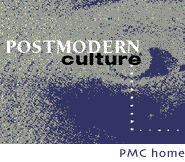
Abstracts
Volume 16, Number 1September, 2005
- Abstract: During the mid- to late 1970s, Britain endured an upsurge of neo-fascist organizing and racial attacks. In response, a strong anti-racist movement grew up among Britain's ethnic minority communities, leading to radical new forms of organizing. Nascent British youth subcultures of the period such as punk were sucked into the vortex of racism. This article examines the organization Rock Against Racism (RAR), which was formed to combat this trend. In its five-year history, RAR drew on the forms of mongrel culture developing among certain sectors of urban British youth to stage groundbreaking performances in which reggae and punk subcultures cross-pollinated. Despite its links to established organizations of the far Left, RAR succeeded in uniting aesthetics and politics in a radical new way by drawing on rather than preaching to youth subcultures of the day. As a result, it produced an important model of autonomous organizing that continues to resonate today. --ad
- Abstract: In memory of Jacques Derrida, this collaborative project reads Errol Morris's documentary Fog of War deconstructively--that is, according to the internal contradictions that characterize the film's protagonist and his discourse. Although McNamara intuits the structural limits of the concepts that govern his discourse, he does not know how to thematize these limits formally. Consequently, he remains caught between insight and blindness in a number of contradictions the implications (social, political, military, psychological, and others) of which he glimpses and struggles to negotiate, but finally cannot name. These contradictions and unnameables require the intervention of Derrida's deconstructions--of a nuclear logic, of voice, of sight, of narrative and filmic framing--to register the lessons of McNamara's lessons. --td, sk, js
- This interview took place in New York City in May 2003. It was revised via email exchanges between Carla Harryman and Laura Hinton from that time through 2005. --lh
- Abstract: During the period of the buildup and onset of World War II, Marcel Duchamp reassembled reproductions of his artistic works in The Box in a Valise (1935-41). This portable museum of miniaturized reproductions, presented in limited edition as signed originals, raises seminal questions about his supposed abandonment of art. Does his gesture of taking refuge from war imply a retreat into art? Is this compilation of reproductions in a valise merely a self-referential artistic exercise? Or does it represent a reflection on the vulnerability of art in the face of war, since according to Duchamp, "art never saved the world"? An examination of his correspondence regarding his first migration to the U.S. during World War II along with his experiments with portable art during this period suggests that the trauma of war exacerbated his growing disenchantment with art. This essay shows that rather than attempting to reclaim past history as an object of nostalgia or autobiographical self-reference, The Box in a Valise delineates a postmodern horizon for new forms of making through appropriation that are no longer reducible to art and to the institution of the museum. --dj
- Abstract: This essay examines the relationship between Derrida's work and that of Bernard Stiegler. Stiegler's thinking can be seen as a radicalization of the idea of the supplement in Derrida. Stiegler differentiates his thinking about technics from Derrida's thinking around the supplement by arguing that, whereas Derrida is interested in a logic of supplementarity, he is interested in the historical differentiations of the technical supplement. Having established the basic terrain of Stiegler's argument in the first volume of Technics and Time, the essay discusses the relationship of that argument to Derrida's work. It exposes various problems with Stiegler's use of what he seems fairly determined to regard as the concept of différance. Stiegler himself sees a problem in the relation between his analysis of technics and Derrida's thinking in that the latter doesn't have an account of the emergence of the human as the point at which the "living articulates itself upon the non-living." Here the essay elucidates this difference with reference to Derrida's own responses to Stiegler in the interviews between the two published as Echographies of Television. --br
Ashley Dawson, "Love Music, Hate Racism": The Cultural Politics of the Rock Against Racism Campaigns, 1976-1981
Timothy Donovan, A. Samuel Kimball, and Jillian Smith, Fog of War: What Yet Remains
Laura Hinton, To Write Within Situations of Contradiction: An Introduction to the Cross-Genre Writings of Carla Harryman
Dalia Judovitz, Duchamp's "Luggage Physics": Art on the Move
Ben Roberts, Stiegler Reading Derrida: The Prosthesis of Deconstruction in Technics
Copyright (c) 2005-1990 Postmodern Culture & the Johns Hopkins University Press. CONTENTS OF THIS ISSUE ARE AVAILABLE FREE OF CHARGE UNTIL RELEASE OF THE NEXT ISSUE. A TEXT-ONLY ARCHIVE OF THE JOURNAL IS ALSO AVAILABLE FREE OF CHARGE. FOR FULL HYPERTEXT ACCESS TO BACK ISSUES, SEARCH UTILITIES, AND OTHER VALUABLE FEATURES, YOU OR YOUR INSTITUTION MAY SUBSCRIBE TO PROJECT MUSE, THE ON-LINE JOURNALS PROJECT OF THE JOHNS HOPKINS UNIVERSITY PRESS.
